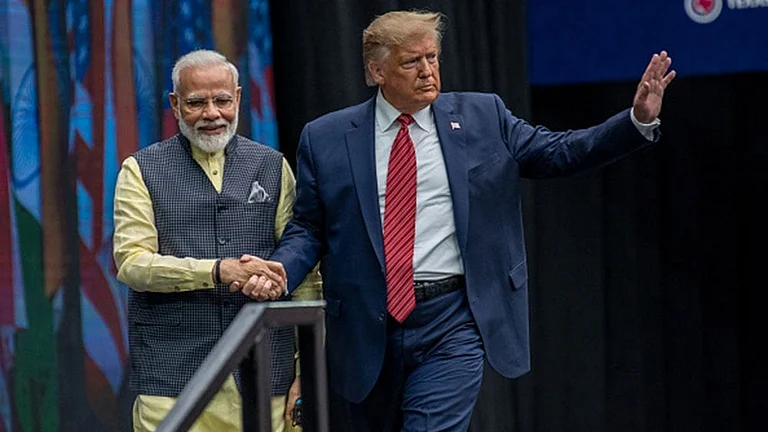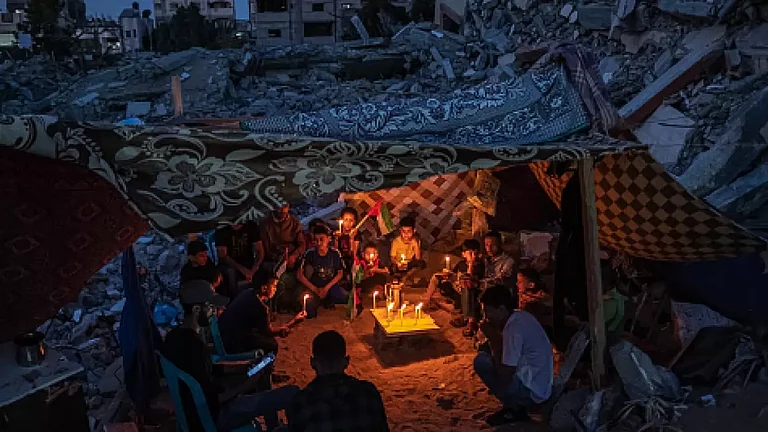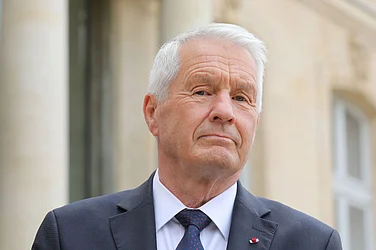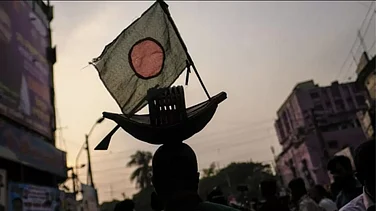It was a few weeks after October 7. It was a cold afternoon, and the sun was dull when my friends were dragged into a dark room, never to be seen again. They were perhaps shot dead.
They were passing through one of the hundreds of checkpoints built around Bethlehem where the Israeli Army can do anything to you depending on their mood. The hostilities have intensified after October 7. We cannot sleep. As Palestinians, we are afraid that what is happening in Gaza can happen to us any day, any moment.
I am a refugee. My grandparents were from Deir Rafat village, which was occupied by Israeli forces in 1948. Since moving to Bethlehem, for us, life has not improved much. All Palestinians live in a state of fear and anxiety as our entire existence has been a struggle—whether as kids, teenagers, and adults.
I grew up with walls around me and I never had the freedom to ask what they were, or why they were there. I grew up to understand that these are apartheid walls depicting racism and white supremacy. Our lives are spent meandering through their checkpoints.
Within these walls and boundaries, art has come to be my sole expression of resistance. I have been a Dabke dancer for nearly five years now. For Palestinians, dance is not just entertainment. We have been using it as a method of resistance. As artists, we believe that the traditional Palestinian art of Dabke needs to be preserved. For so long, they have tried to erase our identity and rule over our culture and heritage. As dancers, we are at constant risk of being arrested because it’s our language of protest against the occupation. Yet we want to send out a message to the world, to show them what is happening in Gaza and how we are suffering.
When I dance, I send a message to humans—that we love life, we love our art, and we want to live life. We want to live free. And we have been trying to do it with several performances in recent times, in different ways. It’s a resistance against Israeli occupation because the occupation is not just killing people but it’s also stealing our culture, our food, and our clothes because they want to reflect what colonisers they are. Through dance, we strengthen our resistance and refuel our hopes.
But it seems that these messages are being ignored. The world is just watching in silence and the silence is deafening.
There is no right or wrong, there is no white and black here. I feel very personal about this silence and I blame it on the Western media. They have tried to erase Palestinians, and many others like us. We, Palestinians, nevertheless speak against genocide—from Congo to Sudan. You know why? Because we all have a common lived experience; we all have been oppressed by the same oppressors—the racists and the white supremacists— throughout history. What is happening in Gaza today, I consider it an exam to test this world’s humanity. Sadly, we have failed.
(As told to Shreya Basak)
(This appeared in the print as 'Dancers Are At Constant Risk Of Being Arrested')
































